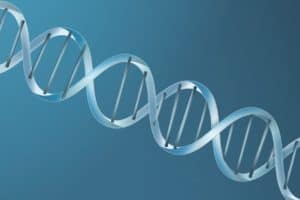Introduction
Autism, a spectrum disorder affecting communication and behavior, exhibits a wide range of symptoms and degrees of severity. Although autism has no “cure,” specific nutritional interventions can offer significant improvements in symptoms. Supplementation with certain essential vitamins and nutrients, supported by recent research, promises tangible benefits. In this article, we will explore the key vitamins for autistic individuals, identifying their dietary sources, symptoms associated with their deficiencies, and recommendations for their intake.
Identifying Nutritional Deficiencies
Diagnosing nutritional deficiencies in autistic individuals requires detailed analysis, including blood tests to assess vitamin and mineral levels. Collaboration with healthcare professionals specializing in autism is vital for obtaining a personalized nutritional intervention plan.
Impact of Nutritional Deficiencies
Deficiencies in essential nutrients can exacerbate autism symptoms, from learning difficulties to sleep disorders and behavioral issues. Furthermore, they can compromise the immune system, increasing susceptibility to infections.
Causes of Nutrient Deficiencies in Autistic Children
Several factors contribute to nutritional deficiencies in children diagnosed with autism:
Restricted Dietary Preferences: Many autistic children have sensory sensitivities affecting their taste, texture, and smell perceptions of food, leading them to restrict their diet to specific foods and thus limiting their intake of essential nutrients.
Gastrointestinal Issues: Gastrointestinal disorders are common in autistic individuals, affecting nutrient absorption. Problems like constipation, diarrhea, and irritable bowel syndrome can prevent the body from effectively absorbing vitamins and minerals from food.
Medication Interactions: Some medications used to manage autism symptoms can affect appetite, nutrient absorption, or both. It is crucial to monitor the impact of medication on nutrition and adjust the diet or supplements as needed.
Biochemical and Metabolic Imbalances: Research suggests that some autistic individuals may have biochemical or metabolic imbalances affecting the metabolism of specific nutrients, increasing the need for supplementation or dietary adjustments.
Addressing Nutritional Deficiencies
Addressing nutritional deficiencies in autistic children should be personalized and multidisciplinary, including evaluation by a pediatrician, a nutritionist, and possibly a gastroenterologist. Implementing specific dietary strategies, guided supplementation, and, when necessary, therapies to address sensory or behavioral issues affecting eating are key to ensuring adequate nutrition.
Proper nutrition is a fundamental pillar in managing autism, and recognizing and intervening in nutritional deficiencies can make a significant difference in the affected individuals’ quality of life. With appropriate support, it is possible to develop a nutritional plan that not only addresses deficiencies but also supports optimal development and improves symptoms related to autism.
Comprehensive Approach to Nutritional Deficiencies
To effectively address nutritional deficiencies in autism, it is crucial to adopt a comprehensive approach that includes:
Digestive and Gastrointestinal Evaluations: Diagnosis and treatment of conditions contributing to malabsorption.
Autoimmunity Tests: Identifying and managing autoimmune conditions affecting nutrient absorption.
Genetic Analysis: Understanding the individual’s genetic variations to personalize supplementation and diet.
This personalized approach, combining medical evaluation, specific nutritional interventions, and collaboration with nutrition and gastroenterology specialists, is essential for improving the well-being and development of autistic children. A deep understanding of the various factors contributing to nutritional deficiencies allows for implementing more effective dietary and supplementation strategies, ensuring that interventions not only address current deficiencies but also promote optimal long-term health.
Key Vitamins and Nutrients

Vitamin D
Benefits: Vitamin D is crucial for brain development and immune function. Research indicates that adequate levels may be related to improvements in autism symptoms.
Food Sources: Fatty fish (salmon, trout, herring), egg yolk, fortified milk, and moderate sun exposure.
Deficiency Symptoms: Muscle weakness, bone pain and weakness, increased susceptibility to infections, speech delay, impaired cognition.
Consumption: Supplementation should be considered under medical supervision, especially in areas with little sunlight.
Omega-3 Fatty Acids
Benefits: Important for brain development and function, studies suggest they can improve aspects of behavior and cognition in people with autism.
Food Sources: Fatty fish, walnuts, chia seeds, flaxseeds, and canola oil.
Deficiency Symptoms: Attention problems, dry skin, mood swings, and behavioral issues, ADHD symptoms, speech disability.
Consumption: Include regular dietary sources of omega-3 or consider supplements after consulting a health professional.
B Complex Vitamins
Vitamin B6 and Magnesium:
Work together to improve brain function and reduce hyperactivity.
B6 Sources: Chicken, turkey, fish, nuts, bananas, and avocado.
Magnesium Sources: Spinach, almonds, pumpkin seeds, and avocado.
Deficiency Symptoms: Irritability, anxiety or depression, fatigue, reduced attention, communication or speech delay, tics, poor sleep, mood swings, constipation, poor memory.
Consumption: Balance the diet with these nutrients, considering supplementation under medical guidance.
Vitamin B12:
Essential for the nervous system and brain development.
Food Sources: Meat, fish, dairy products, and fortified foods for vegetarians and vegans.
Deficiency Symptoms: Fatigue, weakness, memory problems, and cognitive difficulties, very sensitive to touch, poor balance or gait.
Consumption: Ensure adequate intake through diet or supplements, especially in vegetarian or vegan diets.
Folic Acid (B9):
Key for brain development and cellular function.
Food Sources: Leafy green vegetables, legumes, citrus fruits, and fortified cereals.
Deficiency Symptoms: Fatigue, difficulty concentrating, irritability, developmental delays, failure to thrive, poor sleep.
Consumption: A diet rich in fruits and vegetables can help prevent folic acid deficiency.
Zinc
Benefits: Zinc plays a crucial role in immune system functioning, protein synthesis, and DNA repair. In people with autism, zinc supplementation has shown improvements in communication and social behaviors.
Food Sources: Red meat, seafood (especially oysters), legumes, nuts, and seeds.
Deficiency Symptoms: Loss of appetite, slow growth, immunity problems, hair loss, picky eating, diarrhea, speech delay.
Consumption: Zinc should be consumed adequately through diet. Supplementation should be supervised by a health professional to avoid excessive doses, which can interfere with the absorption of other minerals.
Vitamin C
Benefits: Vitamin C is a powerful antioxidant that can support the immune system and aid in neurotransmitter synthesis. It has been suggested that vitamin C could have positive effects on stress management and mood improvement in individuals with autism.
Food Sources: Citrus fruits (oranges, lemons), red fruits (strawberries, kiwis), tomatoes, broccoli, and peppers.
Deficiency Symptoms: Scurvy, which includes fatigue, gum inflammation, bruising and easy bleeding, weakness, constipation.
Consumption: A diet rich in fresh fruits and vegetables is usually sufficient to cover vitamin C needs. Supplementation should be discussed with a health professional.
Probiotics
Benefits: Although not vitamins, probiotics are important for maintaining a healthy gut flora, which can influence behavior and overall well-being. Their use in people with autism to improve digestion and reduce problematic behaviors has been researched.
Food Sources: Yogurt, kefir, sauerkraut, tempeh, and other fermented foods.
Deficiency Symptoms: Not applicable, as probiotics are not nutrients, but an imbalance in gut flora can contribute to digestive issues, mood changes, and immune difficulties.
Consumption: Including fermented foods in the diet can be beneficial. Probiotic supplementation should be guided by a doctor, especially for individuals with specific conditions like autism.
Melatonin
Benefits: Melatonin, a hormone regulating the sleep-wake cycle, has been studied in people with autism to help improve sleep quality.
Food Sources: Melatonin is naturally produced in the body. Some foods can help promote its production, such as cherries, nuts, and whole grains.
Deficiency Symptoms: Sleeping difficulties, changes in sleep patterns.
Consumption: Melatonin supplementation should be done under the supervision of a health professional, particularly to regulate sleep patterns in people with autism.
Selenium
Benefits: Selenium is an essential mineral that plays a crucial role in brain health, immune system function, and thyroid function. Although there are not as many studies on selenium and autism specifically, its role in brain function could suggest potential benefits.
Food Sources: Brazil nuts, seafood, meat, poultry, eggs, and legumes.
Deficiency Symptoms: Fatigue, muscle weakness, thyroid problems.
Consumption: A generally balanced diet provides enough selenium for most people. Supplementation should be monitored by a health professional due to the risk of toxicity at high doses.
Iron
Benefits: Iron is critical for cognitive development and neurotransmitter production. Some studies have suggested that certain individuals with ASD may have low iron levels.
Food Sources: Red meat, chicken, fish, legumes, spinach, and fortified cereals.
Deficiency Symptoms: Anemia, fatigue, constipation, mood changes, tics, poor sleep, anxiety, weakness, and concentration problems.
Consumption: Iron levels should be evaluated before starting supplementation, as excess iron can also be harmful.
Vitamins A and E
Benefits: Vitamins A and E are important antioxidants that protect cells against oxidative damage. Although research is limited, their role in improving symptoms in individuals with ASD has been explored.
Food Sources: Vitamin A is found in foods like liver, dairy, eggs, and orange and dark green vegetables. Vitamin E is found in nuts, seeds, spinach, and broccoli.
Deficiency Symptoms: Vision problems, immune system impairment, neurological issues for vitamin A; muscle weakness, coordination problems, and weakened immune system for vitamin E, cognitive impairment, sleeping problems, balance and coordination deterioration.
Consumption: A varied diet usually covers the needs for these vitamins. Excessive supplementation, especially of vitamin A, can have adverse effects and should be controlled by a professional.
Alpha-Lipoic Acid
Benefits: It is an antioxidant that helps regenerate other antioxidants and may have neuroprotective effects. Its study in relation to autism is preliminary.
Food Sources: Spinach, broccoli, tomatoes, peas, brown rice, and organ meat.
Deficiency Symptoms: Not clearly defined since the body produces alpha-lipoic acid in small amounts.
Consumption: Research on alpha-lipoic acid supplementation in autism is limited, so it’s recommended to follow the guidelines of a health professional.
Incorporating these nutrients, whether through diet or supplements, could offer a complementary strategy in managing autism symptoms. As always, medical evaluation and supervision are crucial to ensure a personalized and safe approach.
General Recommendations
Medical Consultation: Before starting any supplementation, it is essential to consult a physician or registered dietitian, especially to adjust doses and avoid interactions with other treatments.
Balanced Diet: Promoting a varied and balanced diet that includes natural sources of these vitamins and nutrients is fundamental. Supplementation may be necessary in cases of deficiency or specific dietary needs.
Monitoring and Adjustment: Monitor the effects of any supplementation and adjust as necessary, always under medical supervision.
Incorporating these vitamins and nutrients, whether through diet or supplements, can offer a complementary strategy to manage autism symptoms. However, it is crucial to remember that each individual is unique, and what works for one may not be effective for another. A personalized approach is always the best strategy.
Lorem ipsum dolor sit amet, consectetur adipiscing elit. Ut elit tellus, luctus nec ullamcorper mattis, pulvinar dapibus leo.
Lorem ipsum dolor sit amet, consectetur adipiscing elit. Ut elit tellus, luctus nec ullamcorper mattis, pulvinar dapibus leo.













